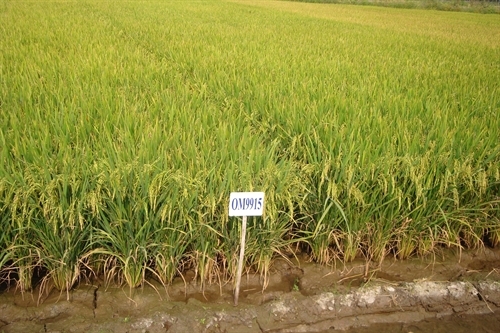 Society
Society

Many farmers in Cửu Long (Mekong) Delta provinces have switched from growing rice to drought-resistant crops to cope with the region’s worst drought in 100 years.
 |
| Many farmers in Cửu Long (Mekong) Delta provinces have switched from growing rice to drought-resistant crops to cope with the region’s worst drought in 100 years.— Photo dantocmiennui.vn |
HÀ NỘI — Many farmers in Cửu Long (Mekong) Delta provinces have switched from growing rice to drought-resistant crops to cope with the region’s worst drought in 100 years.
In Cà Mau Province, instead of three rice crops, farmers grow two and one crop of green beans, which require less water.
In Khánh Bình Tây and Khánh Hưng communes in Trần Văn Thời District, farmers grew more than 1,100 hectares of green beans. Many of them planted the beans in dry paddy fields, with productivity at 2.5 to three tonnes per hectare. Traders buy green beans for price of VNĐ30,000 (US$1.3) per kg.
Nguyễn Văn Tranh, deputy director of Cà Mau Province’s Department of Agriculture and Rural Development, said that farmers were warned of droughts early so they have already shifted to green beans.
Raising shrimps in paddy fields is another way to use cultivation areas.
According to Võ Thành Ngoan, head of the Agriculture and Rural Development Department of Tháp Mười District in Đồng Tháp Province, more than 60 per cent of rice cultivation land is used for both rice planting and shrimp raising.
Hồ Văn Mười, a farmer in the region, earned VNĐ60 million ($2,670) per year when he applied the model on his six-hectares of rice land.
Despite having less water than previous years, shrimp can be fed with small fish and shrimp from the up-stream river, so he does not have to buy food, he said.
Phạm Văn Quỳnh, director of Cần Thơ City’s Agriculture and Rural Development Department, said that the Cửu Long Delta is a strategic area to provide domestically and export farm produce, however, farmers’ incomes remain low.
The application of shrimp raising in paddy fields helps farmers to increase their incomes and deal with climate change, rising sea water and saline intrusion in the region. — VNS




